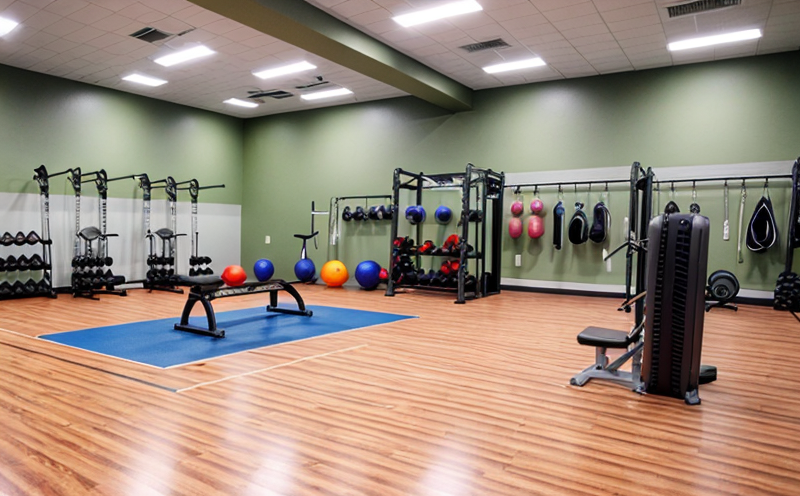Impact Resistance Testing of Fitness Equipment
In today’s rapidly evolving fitness landscape, ensuring that sporting goods and fitness equipment meet stringent impact resistance standards is paramount. This service focuses on the rigorous testing required to guarantee that products can withstand the demands placed upon them during use without compromising safety or performance.
Impact resistance testing plays a critical role in safeguarding users by identifying potential weaknesses in design, construction, or materials before they reach consumers. This process involves subjecting specimens of fitness equipment to controlled impacts using various methods and apparatuses that simulate real-world conditions. The goal is to assess the structural integrity, durability, and overall safety of the equipment under stress.
The testing protocol typically includes multiple stages: initial inspection, preparation of the specimen, application of impact forces, observation of deformation or failure, and finally, analysis and reporting of results. Compliance with international standards such as ASTM F1621-18 for exercise machines is essential to ensure that equipment meets industry benchmarks.
For quality managers and compliance officers, understanding the nuances of this testing is crucial. It allows them to make informed decisions regarding product development, sourcing materials, and manufacturing processes. R&D engineers benefit from detailed insights into how different materials perform under impact stress, enabling innovation in design. Procurement teams can leverage these findings to select suppliers who adhere to high-quality standards.
Impact resistance testing goes beyond mere certification; it fosters a culture of continuous improvement within organizations. By regularly conducting such tests, companies demonstrate their commitment to user safety and satisfaction. The results provide valuable data that can be used to refine future iterations of products, ensuring they remain competitive in an ever-changing market.
| Criteria | Description |
|---|---|
| Material Type | Aluminum, steel, composite materials. |
| Impact Force | Varied based on equipment type (e.g., 100N for small components). |
| Angle of Impact | Standard angles as per ASTM F1621-18. |
| Number of Repetitions | Multiple cycles to simulate long-term use. |
Quality and Reliability Assurance
The importance of quality assurance in the realm of fitness equipment cannot be overstated. Our testing service ensures that every aspect of a product’s design, construction, and materials is meticulously evaluated to meet or exceed industry standards. This commitment translates directly into enhanced reliability, which is crucial for maintaining user trust.
Our team employs advanced instruments capable of simulating the most demanding conditions, thereby providing accurate assessments of each component's performance. Through this rigorous process, we identify any potential weaknesses early on, allowing manufacturers to address issues promptly and efficiently. This proactive approach not only mitigates risks but also enhances brand reputation.
By integrating our testing service into their workflow, companies can benefit from several advantages:
- Increased confidence in product performance
- Reduced risk of recalls or safety issues
- Enhanced customer satisfaction and loyalty
- Compliance with regulatory requirements
Environmental and Sustainability Contributions
The environmental impact of fitness equipment is becoming increasingly important, especially as consumers become more environmentally conscious. By incorporating sustainable practices into our testing service, we contribute positively to both the environment and society.
We use energy-efficient equipment and minimize waste during testing processes. Additionally, we encourage manufacturers to choose eco-friendly materials whenever possible, promoting a greener approach to product development. Our commitment extends further by offering recommendations based on test results that prioritize sustainability without sacrificing quality or performance.
Use Cases and Application Examples
- Bench Press Machines: Ensuring that the frame can handle heavy weights without failure.
- Treadmills: Verifying that the deck withstands continuous high-impact loading over extended periods.
- Cross Trainers: Assessing the durability of moving parts under repetitive stress conditions.





